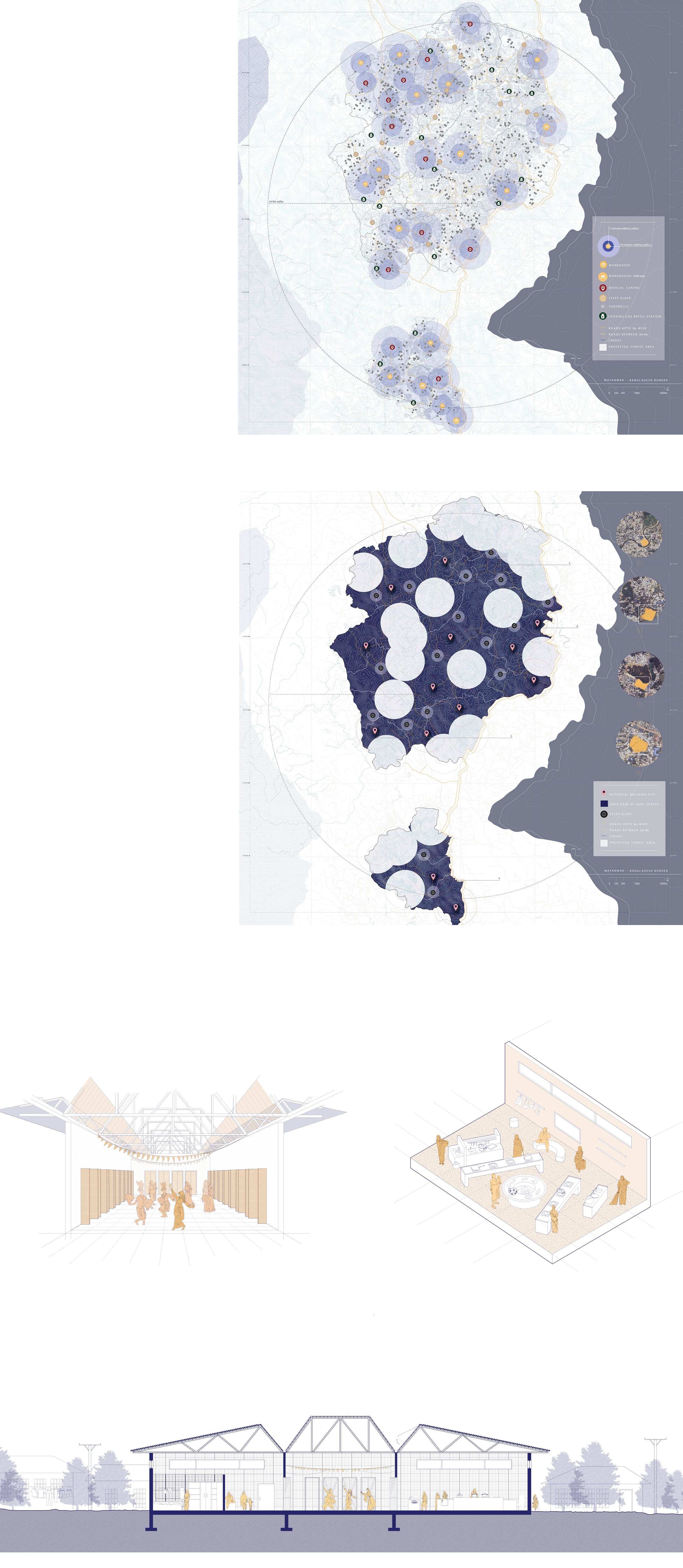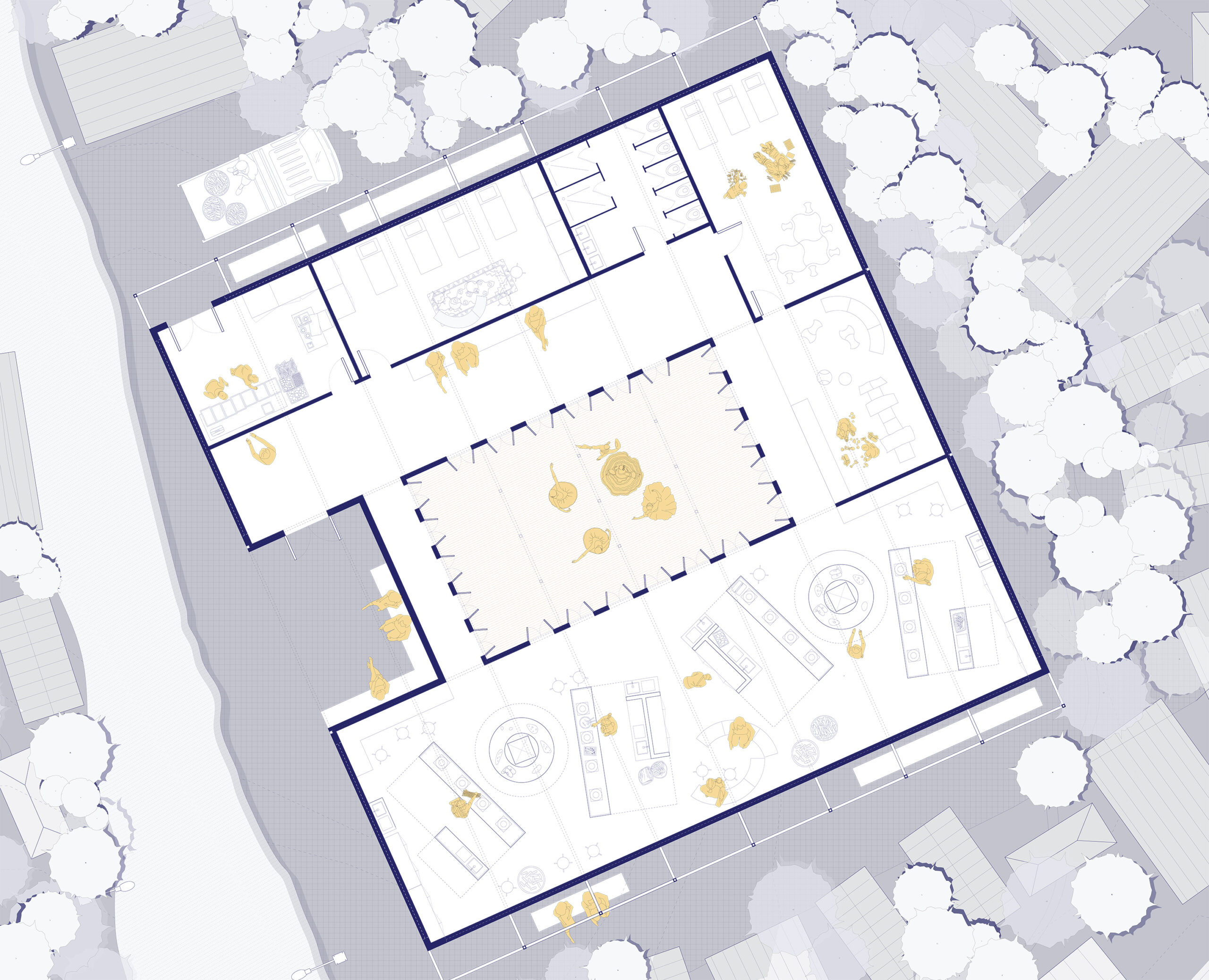In the time that it will take for you to read this sentence from start to finish, twenty-four people will be displaced from their homes due to conflict and disaster. My thesis focuses on intermediate spaces lacking a formal structure of governance, infrastructure, and society at large. The nation-state of Bangladesh presently hosts the world’s largest refugee settlement, the Kutupalong Refugee Camp, a site of “permanent temporariness.” Informally existing for 45 years, Kutupalong Camp is not temporary. It is predicted to stay. It is permanent. Yet, the campsite lacks permanent social infrastructure which is essential to stimulate a sense of belongingness within the people. Women, the dominant gender within the camp, are regularly subjected to gender-based violence (in most cases, by abusive partners). The Rohingya are a Muslim-ethnic minority and most gender-based stereotypes are rigid as both cultural and religious prospects. Thus, this thesis operates within these given boundaries. However, within the boundaries of a kitchen, women possess absolute autonomy. I build upon this pre-existing and socially accepted position of autonomy, amplifying it in the form of a shared kitchen that not only serves as a space to cook meals, but also is a space for bonding and socialization within cultural grounds – a space that serves as a refuge.



